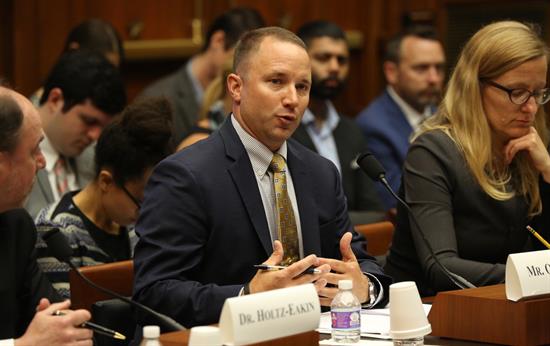Today, the Subcommittee on Workforce Protections, chaired by Rep. Bradley Byrne (R-AL), held a hearing to discuss ongoing Congressional and administration efforts to deliver regulatory reform and promote economic growth.
“Not all regulations are bad, but today’s hearing will explore the benefits of responsible regulatory reform, how regulatory costs can be controlled to allow for the continued growth of the nation’s economy, and the importance of Congress and the administration continuing to collaborate on a regulatory reform agenda,” Chairman Byrne said in his opening statement.
According to the National Federation of Independent Business (NFIB), nearly half of small businesses view regulation as a “very serious” or “somewhat serious” problem.
Ms. Karen Harned, the Executive Director of the NFIB Small Business Legal Center, explained to members, “Overzealous regulation is a continuous concern for small business. The uncertainty caused by future regulation effectively acts as a ‘boot on the neck’ of small business – negatively impacting a small business owner’s ability to plan for future growth, including hiring new workers.”
Ms. Harned later went on to say, “When it comes to regulations, small businesses bear a disproportionate amount of the regulatory burden . . . The small business owner is the compliance officer for her business and every hour that she spends understanding and complying with federal regulation is one less hour she has available to service customers and plan for future growth.”
Dr. Douglas Holtz-Eakin, President of the American Action Forum, contrasted the Obama Administration’s regulatory regime with the Trump Administration’s efforts to remove the undue compliance costs suffered by American businesses large and small.
“The Obama Administration finalized a costly regulation at the average rate of 1.1 per day, and the cost of complying with those regulations added up to $890 billion — according to the agencies themselves that issued the regulations. That cost is an average stealth tax increase of over $110 billion a year,” said Dr. Holtz-Eakin. He then went on to say, “New regulatory cost burdens fell by more than two-thirds — from an average $110 billion per year during the Obama Administration to $30.6 billion in 2017. And the vast majority of those costs originated from rules published in the last few days of the Obama Administration.”
The Trump Administration has committed itself to delivering greater economic opportunity. Early in his administration, the President issued executive orders to reduce the number of regulations and control regulatory costs. Employers are taking notice of Congress and the administration’s actions to remove regulatory burdens. More than 2.7 million jobs have been added to the economy since President Trump’s first full month in office, and unemployment is at its lowest level in almost two decades – a mere 3.9 percent.
Additionally, House Republicans have delivered regulatory relief by advancing 15 resolutions of disapproval under the Congressional Review Act (CRA), five of which originated from this committee. According to the American Action Forum, overturning these 15 regulations achieved about $4 billion in total cost savings for the private sector.
“Burdensome and confusing obligations on our employers often do nothing to improve jobsite safety, but instead stifle our workforce and ignore insightful input from our industry experts. Congress and this administration have already taken important steps toward correcting the workplace safety culture, including this Committee’s important work to repeal the controversial ‘Volks’ Rule,” said Mr. Ryan Odendahl, President of the construction firm Kwest Group.
Mr. Odendahl concluded, “The construction industry continues to see the benefits that have come from a common-sense regulatory agenda and pro-growth tax policies that have allowed us to hire and train more workers and reinvest in our businesses and communities.”
Main street businesses are the lifeblood of our economy. It is important that we give American job creators and their employees every opportunity to thrive. The Committee on Education and the Workforce will continue to focus on efforts to deliver regulatory relief and cultivate an economic environment that promotes success.
# # #

